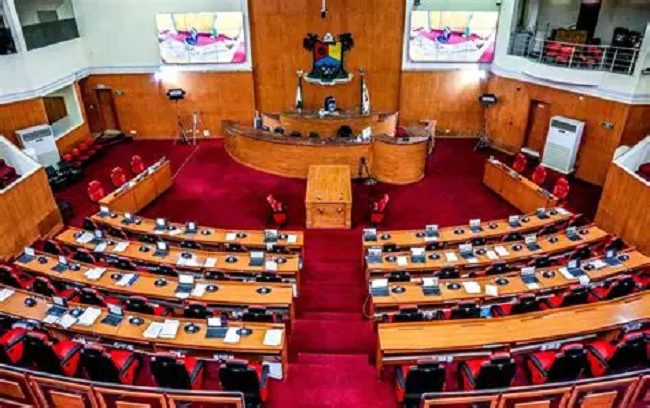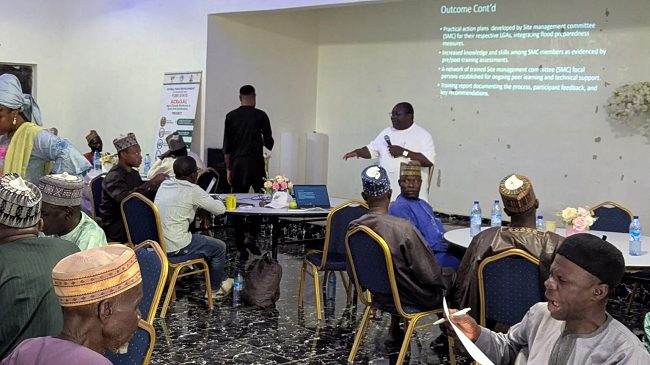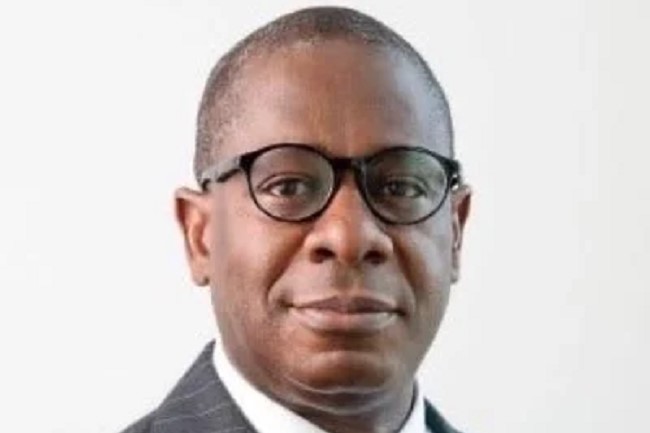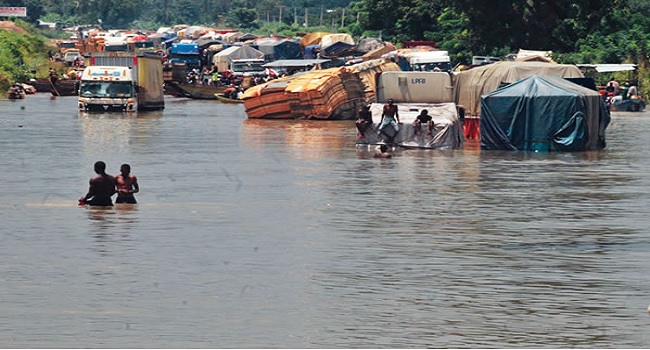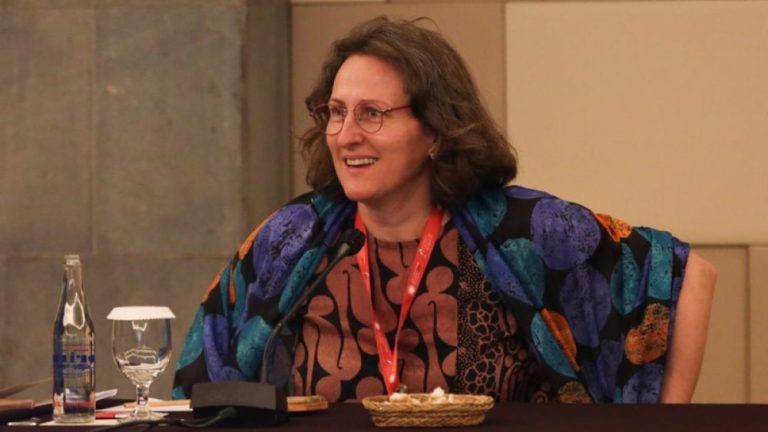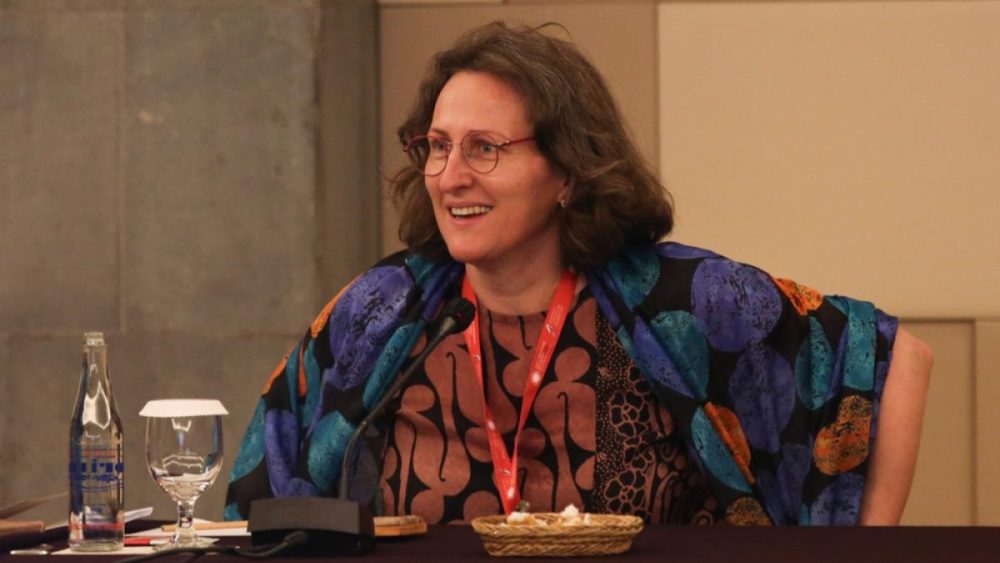Nematologist and co-lead of NemAfrica at the International Institute of Tropical Agriculture (IITA), Dr. Danny Coyne, shares reflections on the work of NemAfrica, which he co-leads alongside Solveig Haukeland at the International Centre of Insect Physiology and Ecology (icipe). NemAfrica works to tackle nematode pests – microscopic worms, which attack a wide range of key crops, such as potatoes
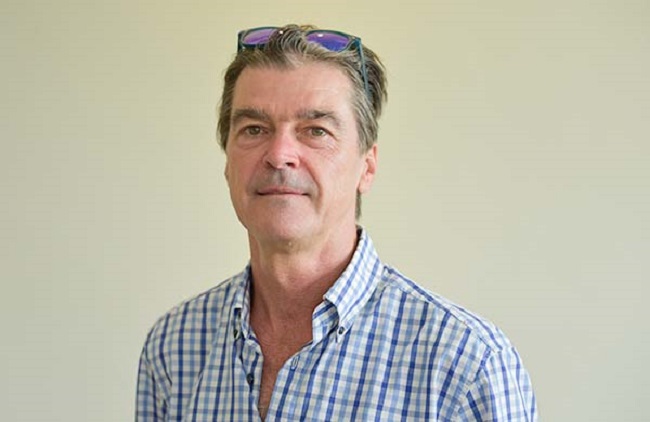
Why NemAfrica?
To combine forces from two institutes and create synergy and critical mass towards expanding nematology research and capacity in Africa.
Looking back over the past 10 years, what has been the most surprising discovery or unexpected challenge in nematology research?
There are regular discoveries in relation to recording new hosts for certain species of nematode or finding new species or discovering species in new locations, through to discovering new ways and technologies for managing nematode pests. But probably the most surprising discovery was the very high prevalence of potato cyst nematodes across Kenya, and its presence in other east African countries – and as such posing a major threat to the potato industry across East Africa.
When you launched NemAfrica what was the biggest gap in nematology research and how have you filled it?
The biggest gap was probably in the lack of awareness and knowledge by farmers and agricultural staff, and which remains probably the greatest challenge, in that how do we create better knowledge and understanding of nematode pests and how to manage them by farmers.
Are African governments and research institutions doing enough to integrate nematode science into national food security strategies?
Definitely not – which is to a large part through the lack of awareness by researchers and agricultural staff in the first place.
You work with invisible pests. How did you end up chasing microscopic worms underground for a living?
Originally by receiving a grant for my MSc and continued from there.
What efforts are being made to increase the number of nematologists in Africa?
Minimal in general – except through a limited number of initiatives and thereon through individual nematologists. This is why NemAfrica, together with its extensive network of partners is so important in this respect.
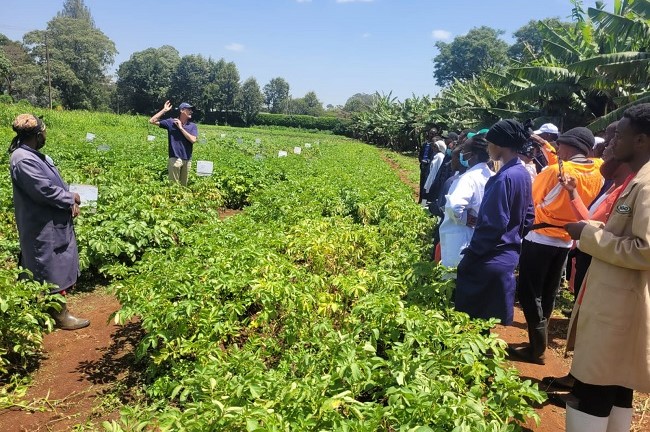
Why are farmers battling something they can’t see—and often don’t know exists?
They are not battling exactly as they are unaware of them mostly. They are battling to overcome reducing yields and lower harvest weights, however, which can be caused by nematode pests; and battling losses due to damaged, deformed or rotted tubers caused by them.
You have helped develop new nematode-resistant potato varieties. How do they work – and can they outsmart the current pests?
We have just introduced two new varieties to Kenya that are resistant to PCN, which were developed naturally by breeders in Scotland. The resistance is durable and works well, but it is always possible for resistance breaking populations of nematodes to develop. Consequently, managing nematode pests is an ongoing battle, as it is against other pests and diseases.
What are the biggest barriers preventing smallholder farmers from adopting nematode-resistant crops or sustainable management practices?
An initial major barrier is that farmers are mostly unaware of nematodes and so do not understand the reason for a nematode resistant variety. A big barrier to adoption of new pest and disease resistant varieties, however, is their possible unsuitability to consumers, who may not like the taste, texture or colour even. Adoption and acceptance of new varieties relies on the combination of several preferred traits, including agronomic traits. Introduction of new crops can take time for farmers (and consumers) to become familiarized with them, and that they have a value, ultimately a financial one. New management options require demonstration of their benefits to crop production and returns to farmers, and that they are readily applicable or easy to use, I would say.
What limitations have been faced in tackling the challenge of nematodes in Africa?
A major challenge remains their hidden nature and lack of visibility and knowledge by farmers in the first instance. Thereafter, limited nematology expertise further drags progress in creating awareness of nematodes. So, it is a slow march effectively, to create more nematology expertise – towards improving nematology knowledge at large. It takes time. This includes the integration of nematology in undergraduate studies – as a standalone topic in agriculture and biology programs. Normally, nematology is tagged on to the back of pathology or entomology, and taught by non-nematologists, who may not be as interested or as knowledgeable and thus may not have the same zest or energy for nematology.
How can agroecological approaches (e.g., crop rotation, intercropping) be optimized for nematode management in different African regions?
A number of agroecologicalmethods can help, but due to expansive host ranges for some of the most problematic nematodes, rotation is not always effective; in addition, there is often a mixture of nematode species present at the same time. So, while rotation with non-host crops may help suppress and manage one nematode pest, it may not be effective against the others that are present, which then take the place of the species that is being controlled. But cover crops, antagonistic crops and crop rotations can be effective – providing that farmers are willing to use them, which they may not always be happy to.
If you could solve one major nematode-related problem in the next 10 years, what would it be and why?
It is difficult to pin down one single problem. The PCN issue in East Africa is here to stay. They are very difficult to eradicate, and essentially impossible. It is therefore a case of managing the problem to reduce the losses and reduce population densities. But by employing a combination of tactics or technologies, we can hopefully provide the guidance and tools to do this. A cross-cutting nematode problem, however, is the root knot nematode problem. They can be devastating to many crops and are also very difficult to control. There are a few key species, which have very wide host ranges reducing the impact of crop rotation. There is some resistance in some varieties of crops though, but this generally does not work against all root knot nematode species.
Effectively, it requires a basket of options to overcome root knot (and nematode pests in general), but we need more resistant varieties to help with this. They are very damaging but if we can make progress in reducing the impact of PCN in East Africa over the next 10 years, then this would be a key goal. But it would no doubt take more than 10 years.
What gives you hope that we can finally turn the tide underground?
The energy, enthusiasm, and genuine interest of our next generation nematologists – our students, interns, and staff in working on nematodes gives us much hope that things are changing and will continue to change and turn the tide. The more expertise and knowledge that is generated through NemAfrica and through our partners and university collaborators the greater the knock-on effect towards extending information and awareness of nematodes in agriculture.
What next for NemAfrica?
Keep on keeping on

